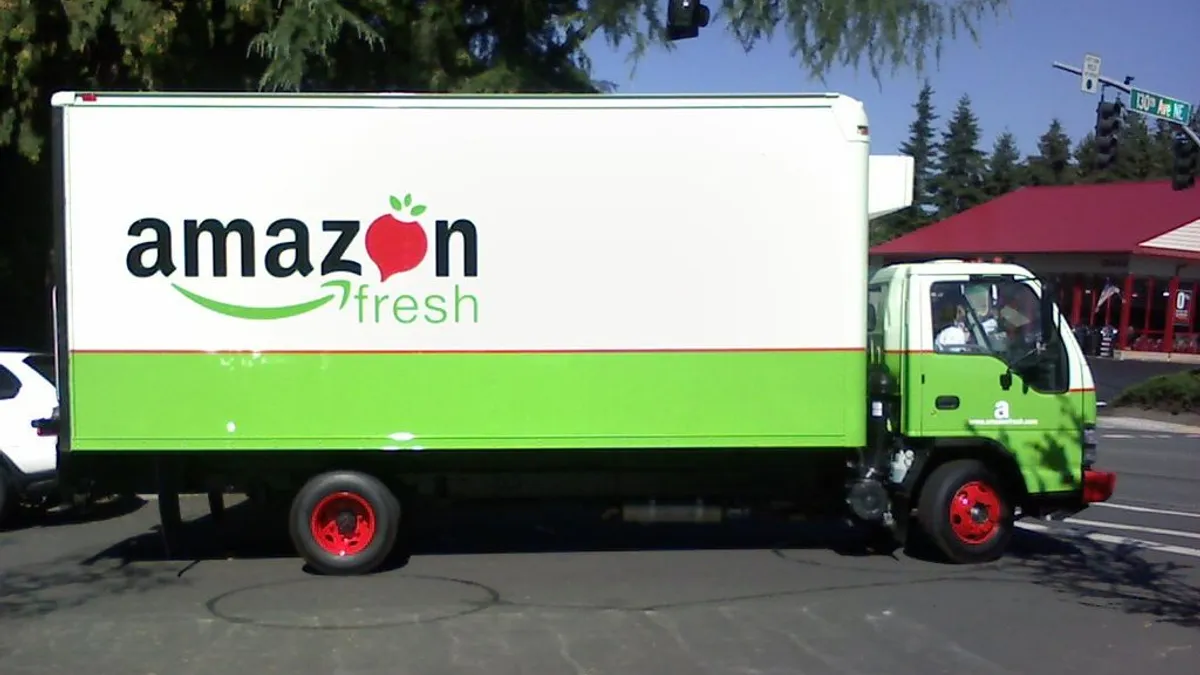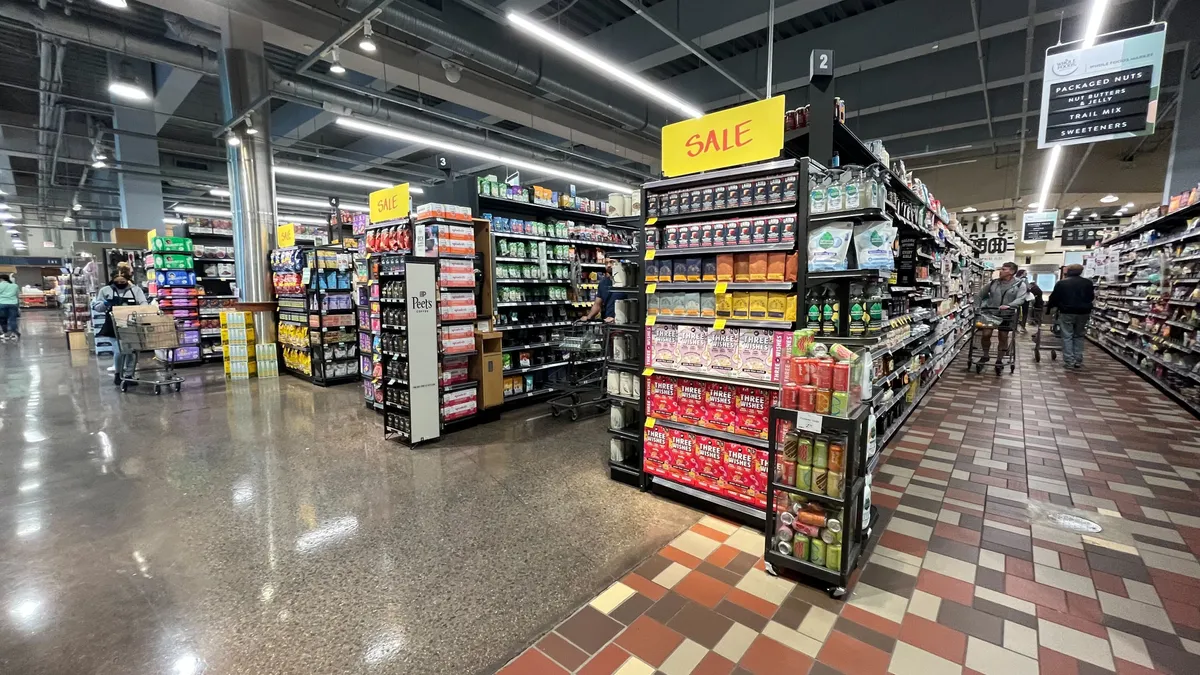Dive Brief:
- Amazon has expanded its AmazonFresh grocery delivery service to its Amazon Business platform, according to Geek Wire. The company sent an email to Amazon Business customers Wednesday advertising the extension, which will allow business to stock their office kitchens with fresh produce and other groceries from Amazon or local stores.
- In order to place AmazonFresh orders, Amazon Business customers will need to link their individual Prime accounts, at no extra charge, to their Amazon Business accounts. This service platform is the same as what individual customers of AmazonFresh receive, including same or next-day delivery.
- Amazon Business offers bulk-quantity discounts as well as analytics and corporate purchasing capabilities.
Dive Insight:
Considering AmazonFresh’s slow growth over the past decade, it makes sense for the company to add value in areas where the service currently exists. Right now, AmazonFresh is available in a handful of U.S. cities as well as a few cities abroad, including London, Berlin and Tokyo.
Adding business ordering and deliveries could be profitable for the company since the average order will be larger, and because customers may set regular orders. The service will also try to capture many affluent office workers, who are the target audience for the grocers’ natural and organic products, and who may adopt the service for themselves if they like what they get.
Amazon’s timing also appears to be good, with many offices now offering meals and snacks for workers. Health is a big corporate focus these days, with companies stocking their fridges with fresh fruits and vegetables, hummus and yogurt. Indulgent items like candy, beer and chips have also become staple offerings. According to a 2015 survey of 1,000 workers conducted by online grocer Peapod, 67% of workers with access to free food in their offices say they’re happy with their job, compared to 56% overall who say they’re happy.
The big question is how the company’s Fresh selection might change, if at all. Will Amazon go after meal and catering business by offering prepared meals? Will it offer bulk packages of cold brew coffee and other items? Will it partner with local restaurants or other vendors to capture these additional eating occasions? Amazon will be competing against other online grocers as well as restaurant delivery services like Peach and Seamless. It will need to differentiate from these players in order to succeed.
There’s been speculation that Amazon could expand its Fresh footprint using Whole Foods’ stores and distribution centers for fulfillment once it acquires the chain. That would certainly help address one of Fresh’s biggest hurdles to date — a lack of cold storage facilities. Given the inefficiencies of last-mile fulfillment, Amazon will also be looking for ways to meet variable demand. If the company can outmaneuver the competition, business orders should provide a steady stream of large, consistent orders that could serve as a profit center for Fresh.










